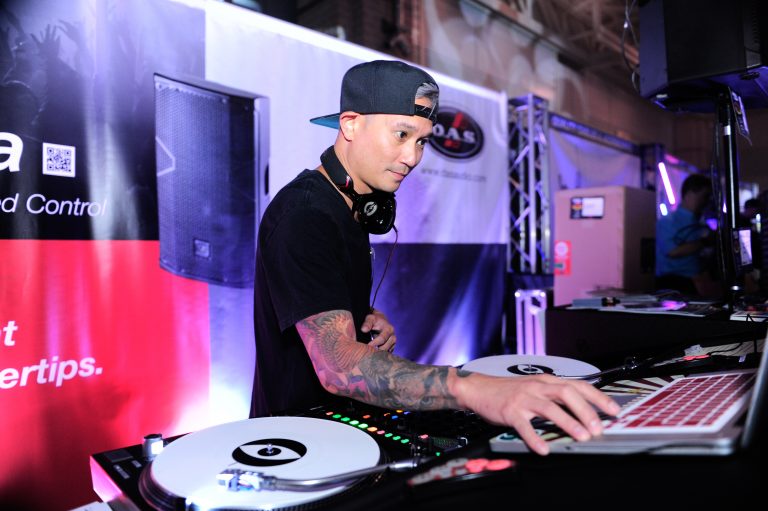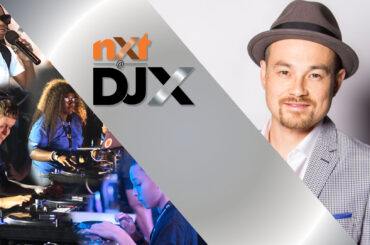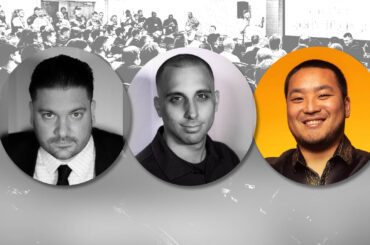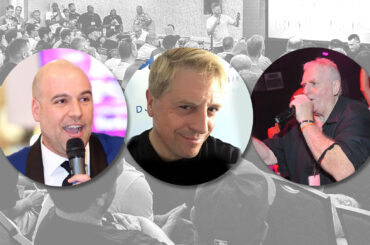By Chadwick Harrington
New Jersey-based mobile Artem Lomaz has a background in marketing and advertising. In his career, he’s had stops at Zenith Media and Party City’s corporate marketing department, where he came to understand brand building and positioning. He uses these lessons with his luxury single-op, NinetyThree Entertainment.
Lomaz saw enough parallels between his two worlds to come up with a seminar for the DJ Expo – “Lessons from the Brandmakers.” So, we asked the Roxbury, N.J.-based jock a few questions about the importance of personal branding and what topics will be broached at his seminar.
DJ Times: What’s the seminar overview? In other words, why should a DJ care about this topic?
Artem Lomaz: The purpose of the seminar is to not only encourage introspective analysis for the event entertainers in attendance — to look back at your careers historically and ask how can you utilize those experiences to improve your performance and/or business practices — but to also gain the perspective of those outside of the industry. The panel will include successful representatives in their respective fields, who will share how they accomplished their own growth, while also looking to highlight how each seemingly un-related industry can correlate to what we do as event entertainers and business owners. The hope is to also encourage a thought process regarding how to relate to potential customers, that are understandably not associated with the industry.
What is personal branding and why is it important?
Personal branding is important because it’s the initial impression that you release to those that you interact with. In essence, it’s your recognition, it’s how your clients will see you representing them, and it’s how you’re choosing to relate to your target audience.
You’re going to have Louis Wittig, copywriter and associate creative director from Grey New York, an advertising and marketing agency, on the panel. What are two of the parallels from his business to the DJ industry?
In the ad-agency world, campaigns are created via a copywriter and art director, which parallels the DJ and MC relationship in the event entertainment space. The parallels are that the MC is like the copywriter, and the DJ is like the art director. Often, the MC acts as the entertainment director, with a plan of action and possibly a script, while the DJ works off of those ideas and looks to create a soundtrack to them. The art is the music programming, and the ideation is the MC’s pre-event process. They’re so important because they work hand-in-hand, and if one doesn’t acknowledge the other, things can go wrong very quickly.
You’ll also have Walt Blau, who worked for Coca-Cola on the brand side. He talks about the importance of passive income. How can a DJ make passive income?
DJs can make passive income in a number of ways: equipment rentals (i.e., photo booths, lights, etc.); multi-op-ing, franchising, etc. But one of the keys to Walt’s success has been finding ways to have others selling his services. He’s done this through strategic partnerships. This can work for DJs by utilizing partnerships with event planners, cinematographers, photographers, etc.
There will be a comedian on the panel as well, Brett Davis, an Andy Kaufman Award Winner, “Comedy Central’s Comics to Watch,” writer, producer, and star of IFC’s “Boy Band.” What can a DJ learn from a comedian when it comes to reading a crowd?
Brett’s style of comedy involves wildly different sets, for wildly different audiences. “Sometimes you won’t know if you’ll have an audience that has never seen comedy before, or have been to five different comedy shows that week,” says Brett. “An audience in Bushwick is going to laugh at something different than an audience in midtown Manhattan or Los Angeles or Denver. The key is preparing ahead of time, reading a room in the moment, and an ability to work on the fly. And lots of practice. And failure.”
You’ll also have Ian McHugh, owner of NYC Photo Party, who’ll talk about focusing on a target market. Can you give us an example or two?
Ian’s expertise comes way of the photo-booth business. Although many entertainers in our field own their own photo booth, Ian’s business operates on innovate, ever-evolving photo-booth structures, and technologies. Originally from New Jersey, Ian was inspired while living in Las Vegas, to bring the Las Vegas Photo Party experience back to the East Coast. His homecoming came with a surge of corporate clients interested in branding and promotional opportunities via Ian’s booths and social media-connected software. In his understanding of his clients’ needs, NYC Photo Party has now been creating and further developing photo booth software that will enhance, as well as expedite, user experience.
So, the two examples….
Right! In order to focus on a specific target market, you must first define who they are, based on a variety of factors. Two tips on focusing on a specific target market are to identify which market helps you do your best work, and identify how you can help them achieve even more with what you have to offer.
Each panelist will offer insight into business and performance enhancement opportunities for all attendees. The combination of industry experts, and the fact that most of the clients we work with are not in our industry, will help event entertainers better relate to potential clients, as well as develop an introspective review process.







